24+ Years Experience
Specialist Epoxy Resin Flooring

Enquire Today For A Free No Obligation Quote
In the world of epoxy resin flooring, sustainable practices have gained significant importance. Epoxy resin flooring is a popular choice for its durability, versatility, and aesthetic appeal. However, the environmental impact of traditional epoxy resin flooring raises concerns regarding its sustainability. It is crucial to understand the need for sustainable practices in epoxy resin flooring and the efforts being made to mitigate its impact on the environment.
This article explores the concept of epoxy resin flooring, delves into the importance of sustainability in this industry, and examines the environmental impact of traditional epoxy resin flooring. It also highlights sustainable practices being adopted, such as the use of low VOC and green building certified epoxy resins, recycling and waste reduction measures, and energy efficiency initiatives. Furthermore, the benefits of sustainable epoxy resin flooring, including improved indoor air quality and reduced environmental impact, are discussed.
However, there are considerations and challenges to be aware of, such as the cost and affordability of sustainable options and the need to evaluate sustainability claims. Finally, the article looks towards the future, exploring what lies ahead for sustainable practices in epoxy resin flooring.
Epoxy resin flooring is a durable and versatile type of flooring commonly used in commercial and industrial settings. It is created by mixing epoxy resin with a hardener, resulting in a strong and chemical-resistant surface. Epoxy resin flooring is renowned for its high gloss finish and seamless appearance. It can withstand heavy traffic, impacts, and spills, making it ideal for areas requiring a durable and easy-to-clean surface. This flooring type is popular in warehouses, manufacturing facilities, hospitals, and laboratories. Epoxy resin flooring offers numerous benefits, including durability, chemical resistance, and customization options.
Sustainability is of utmost importance in the world of epoxy resin flooring to minimise the environmental impact associated with its production and use. By adopting sustainable practices, such as the use of low VOC and green building certified epoxy resins, recycling and waste reduction, and prioritising energy efficiency, the flooring industry can contribute to a greener future. Sustainable practices ensure improved indoor air quality, reduced environmental impact, and certification and compliance with sustainable standards. As the demand for eco-friendly materials increases, advancements in sustainable materials and technology will pave the way for a more sustainable epoxy resin flooring industry. Sustainability is vital to protect the planet and create a healthier environment for all.
Fun fact: Sustainable epoxy resin flooring can help reduce greenhouse gas emissions, contributing to the fight against climate change.
Traditional epoxy resin flooring can have a significant environmental impact. This section explores the environmental consequences of this widely used flooring option. From the chemical composition and VOC emissions to the generation and disposal of waste, we will uncover the facts that you need to know. Prepare to discover the not-so-eco-friendly aspects of traditional epoxy resin flooring and learn about its potential implications for the environment.
Chemical composition and VOC emissions are important factors to consider when discussing epoxy resin flooring. The table below provides a comparison of the chemical makeup and VOC emissions of different types of epoxy resins.
| Epoxy Resin Type | Chemical Composition | VOC Emissions |
|---|---|---|
| Traditional Epoxy Resin | Contains harmful chemicals such as volatile organic compounds (VOCs) and solvents. | High VOC emissions, contributing to air pollution and poor indoor air quality. |
| Low VOC Epoxy Resin | Formulated with fewer harmful chemicals and lower VOC content. | Reduced VOC emissions, promoting better indoor air quality and environmental sustainability. |
| Green Building Certified Epoxy Resin | Meets strict environmental standards, with minimal chemicals and VOCs. | Negligible VOC emissions, ensuring excellent air quality and environmental friendliness. |
By choosing epoxy resins with lower VOC emissions and sustainable certifications, one can minimize the negative impact on air quality and make a more environmentally conscious choice for epoxy resin flooring.
Waste generation and disposal are important considerations in the world of epoxy resin flooring. The environmental impact of traditional epoxy resin flooring can be significant due to its chemical composition and VOC emissions during installation and maintenance. Proper handling and disposal methods are required for waste generation and disposal. Sustainable practices aim to address these issues by promoting recycling and waste reduction. The use of low VOC and green building certified epoxy resins can also help minimize the environmental impact. By implementing these sustainable practices, the epoxy resin flooring industry can reduce waste generation and ensure responsible disposal.
When it comes to sustainable practices in epoxy resin flooring, there are many ways in which this industry is making a positive impact. The use of low VOC and green building certified epoxy resins, recycling and waste reduction, and energy efficiency all contribute to reducing the carbon footprint. This section will explore the different aspects of sustainability within epoxy resin flooring and how these practices are transforming the industry, benefiting both the environment and our communities.
Using low VOC and green building certified epoxy resins in flooring provides numerous benefits for both the environment and occupant health. Here are some reasons why:
1. Reduced emission of volatile organic compounds (VOCs), which contribute to indoor air pollution.
2. Enhanced indoor air quality, promoting a healthier and more comfortable living or working environment.
3. Compliance with green building standards and certifications, demonstrating a commitment to sustainability.
4. Utilisation of eco-friendly materials derived from renewable resources, minimising reliance on fossil fuels.
5. Contribution to reducing the carbon footprint and mitigating climate change.
By choosing low VOC and green building certified epoxy resins, you can ensure that your flooring choice aligns with sustainable practices and contributes to a healthier and greener future. Consider collaborating with suppliers and contractors who prioritise these environmentally friendly options to achieve the best results.
Recycling and waste reduction play a crucial role in promoting sustainability in epoxy resin flooring. The following practices can be adopted to minimize waste and encourage recycling:
Fun Fact: Recycling one ton of epoxy resin flooring materials can save up to 1.2 tons of carbon dioxide emissions, significantly reducing its environmental impact.
Reducing energy consumption and carbon footprint is essential in the world of epoxy resin flooring. Here are some ways to achieve energy efficiency and sustainability:
Pro-tip: Regularly maintaining and cleaning your epoxy resin flooring can help optimise energy efficiency and extend its lifespan.
Looking to explore the amazing advantages of sustainable epoxy resin flooring? In this section, we will discuss improved indoor air quality, reduced environmental impact, certification and compliance, and evaluating sustainability claims. Additionally, we will delve into the future of sustainable practices in the world of epoxy resin flooring. Prepare yourself to discover how this innovative flooring solution can have a positive impact on both your space and the environment.
Improved indoor air quality is one of the key benefits of sustainable epoxy resin flooring. Traditional epoxy resin flooring has the potential to release volatile organic compounds (VOCs) into the air, which can lead to poor indoor air quality and health problems. Sustainable epoxy resin flooring solutions prioritize the use of low VOC and green building certified resins, which helps to reduce the emission of harmful chemicals.
An example of how sustainable epoxy resin flooring improved indoor air quality can be seen in the case of a school in California. By replacing their old epoxy flooring with a low VOC and environmentally friendly option, the school witnessed a noticeable decrease in respiratory issues among students and staff.
Reducing the environmental impact is a crucial aspect of epoxy resin flooring. Implementing sustainable practices is necessary to minimise negative effects on the environment. These practices include using low VOC and green building certified epoxy resins, recycling and waste reduction measures, as well as focusing on energy efficiency and reducing the carbon footprint. By adopting these practices, epoxy resin flooring can contribute to improved indoor air quality, reduced waste generation, and a smaller environmental footprint. These sustainable practices also align with the changing demands and expectations of consumers for more environmentally friendly products. The future of epoxy resin flooring depends on advancements in sustainable materials and technology, collaboration among industry stakeholders, and adherence to industry standards.
Certification and compliance are vital aspects of sustainable epoxy resin flooring. They ensure that the flooring materials meet specific standards and regulations, promoting environmental responsibility and safety. Here is a table highlighting the significance of certification and compliance in epoxy resin flooring:
| Benefits | Importance |
| 1. Environmental sustainability | Promotes the use of eco-friendly materials and practices, reducing the impact on the environment. |
| 2. Safety and health | Certified flooring minimises the use of hazardous chemicals, ensuring a healthier indoor environment for occupants. |
| 3. Compliance with regulations | Meeting certification standards guarantees adherence to local, national, and international regulations governing sustainable building practices. |
| 4. Market acceptance | Certification enhances the marketability of epoxy resin flooring by demonstrating its compliance and commitment to sustainability. |
By prioritising certification and compliance, stakeholders in the epoxy resin flooring industry can contribute positively to the environment, human health, and industry standards.
Suggestions for stakeholders:
Evaluating sustainability claims is essential when selecting epoxy resin flooring. To assess the environmental impact of a product, consider the following factors:
| Chemical composition and VOC emissions | Waste generation and disposal | Energy efficiency and reduced carbon footprint | Certification and compliance |
|---|---|---|---|
| Look for low VOC and green building certified resins to minimise harmful emissions. | Choose products with recycling and waste reduction practices to minimise landfill waste. | Opt for materials that prioritise energy efficiency during production and use. | Verify if the product meets sustainability standards and certifications. |
Careful consideration and research are required to assess sustainability claims and ensure that you make an environmentally responsible choice.
The future of sustainable practices in epoxy resin flooring is looking promising. There have been advancements in materials and technology, as well as shifting consumer demands. The industry is adapting to meet these expectations and placing more emphasis on environmental responsibility. Collaboration between manufacturers, suppliers, and industry professionals is driving the development of sustainable materials and practices. There are also industry standards and certifications being established to ensure compliance and evaluate sustainability claims. However, cost and affordability remain a consideration and challenge when implementing these practices. To create a more sustainable future for epoxy resin flooring, it is crucial to continue pushing for innovation, education, and awareness within the industry.
The future of epoxy resin flooring is filled with exciting possibilities, driven by advancements in sustainable materials and technology, shifting consumer demands, and collaboration within the industry. This section explores the evolving landscape of epoxy resin flooring, from embracing eco-friendly options to meeting higher expectations. We will uncover the latest trends and innovations and delve into how the industry is paving the way for sustainable practices, ensuring a greener and more responsible future.
Advancements in sustainable materials and technology have resulted in significant improvements in epoxy resin flooring. This is evident in the development of eco-friendly epoxy resins that have a reduced environmental impact. These resins are made from renewable resources and have lower VOC emissions, which in turn leads to improved indoor air quality. New technologies have been introduced to make the production and installation processes more energy-efficient and reduce carbon footprint. With these advancements, epoxy resin flooring can now be considered a sustainable choice for various applications, offering durability, aesthetics, and environmental responsibility in one package.
| Innovations in Sustainable Materials and Technology for Epoxy Resin Flooring |
|---|
| 1. Eco-friendly epoxy resins made from renewable resources |
| 2. Reduced VOC emissions for improved indoor air quality |
| 3. Energy-efficient production and installation processes |
| 4. Technologies for waste reduction and recycling |
| 5. Integration of sustainable additives for enhanced performance |
Shifting consumer demands and expectations play a vital role in the world of epoxy resin flooring. Consumers are increasingly concerned about sustainability and environmental impact and seek products and materials that align with their values. They prioritise eco-friendly options that promote reduced VOC emissions, waste reduction, and energy efficiency. In response, manufacturers are developing sustainable materials and technologies to meet these demands. Collaboration and adherence to industry standards are also crucial factors. By staying attuned to shifting consumer demands and expectations, the epoxy resin flooring industry can continue to evolve and meet the needs of environmentally-conscious consumers.
Collaboration and industry standards play a crucial role in promoting sustainability in the world of epoxy resin flooring. Here are some key aspects to consider:
By working together and adhering to established standards, the epoxy resin flooring industry can cultivate a more sustainable and environmentally responsible future.
The development of sustainable practices in the epoxy resin flooring industry has been a collaborative effort among manufacturers, architects, and contractors. Through industry standards and shared knowledge, stakeholders have worked together to reduce environmental impact and promote transparency. This collaboration has led to innovative materials and technologies, ensuring that epoxy resin flooring meets strict sustainability criteria. As a result, the industry continues to evolve, striving for continuous improvement and a greener future.
Using sustainable epoxy resin flooring offers several advantages. Firstly, it helps reduce the carbon footprint and mitigate climate change as these floors are made from renewable resources. Additionally, they can be recycled at the end of their life cycle, contributing to a circular economy. These floors are also highly durable and resistant to wear and tear, making them suitable for high-traffic areas.
Eco-friendly epoxy floors, such as Everlast® Floors, contribute to a healthier workplace environment in multiple ways. They contain no harmful solvents, improving indoor air quality and preventing the release of chemicals into the environment. These floors are highly light reflective, creating a brighter working environment and boosting employee morale. The absence of harmful substances reduces the risk of respiratory problems and enhances overall employee well-being.
Choosing eco-friendly epoxy flooring demonstrates a commitment to sustainability and environmental responsibility. It enhances the brand image and reputation of a business, as consumers actively seek out environmentally conscious businesses. Additionally, eco-friendly flooring offers long-term cost savings as it is durable and requires less frequent replacement and maintenance.
Bio-based epoxy resin floors contribute to environmental conservation in several ways. They are made from renewable resources, reducing the consumption of natural resources. These floors can be recycled at the end of their life cycle, minimizing waste. By choosing bio-based epoxy resin floors, businesses help reduce their carbon footprint and support the principles of sustainability.
Epoxy floors offer various design benefits for commercial spaces. They have a glossy finish and are light reflective, enhancing the ambience and creating visually appealing interiors. The design flexibility of epoxy floors allows for zoning with different colors or patterns, which can differentiate specific areas within a store or other commercial facility. With a wide range of colors, finishes, and textures available, epoxy floors offer architects and designers the opportunity to create unique, engaging spaces.
Choosing sustainable epoxy resin flooring, such as bio-based or eco-friendly options, can have a positive impact on a business’s brand reputation. It demonstrates the company’s commitment to environmental responsibility and attracts environmentally conscious customers, investors, and partners. By opting for sustainable practices and materials, businesses position themselves as leaders in sustainability and differentiate themselves from competitors who may not prioritize eco-friendly practices.
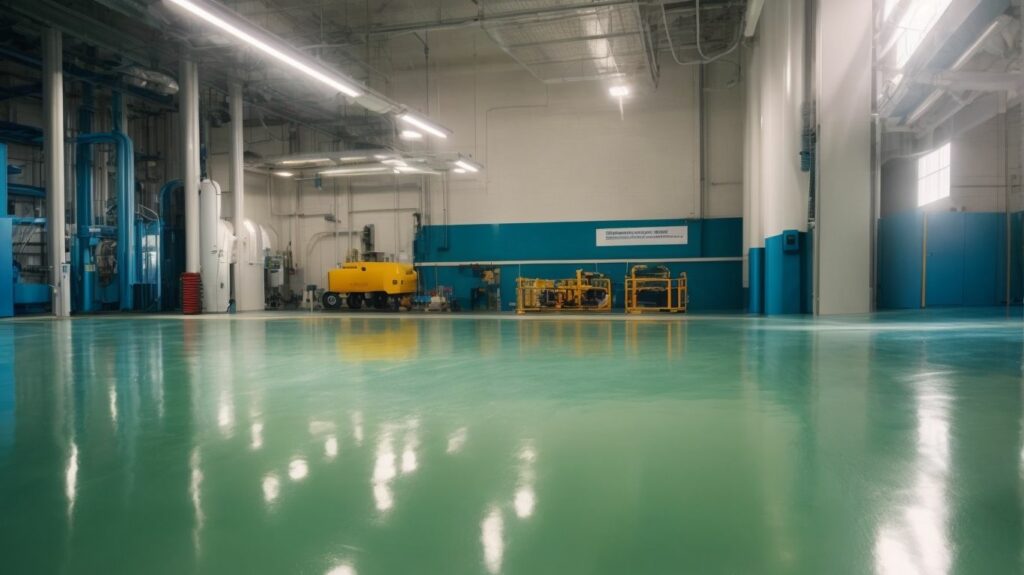

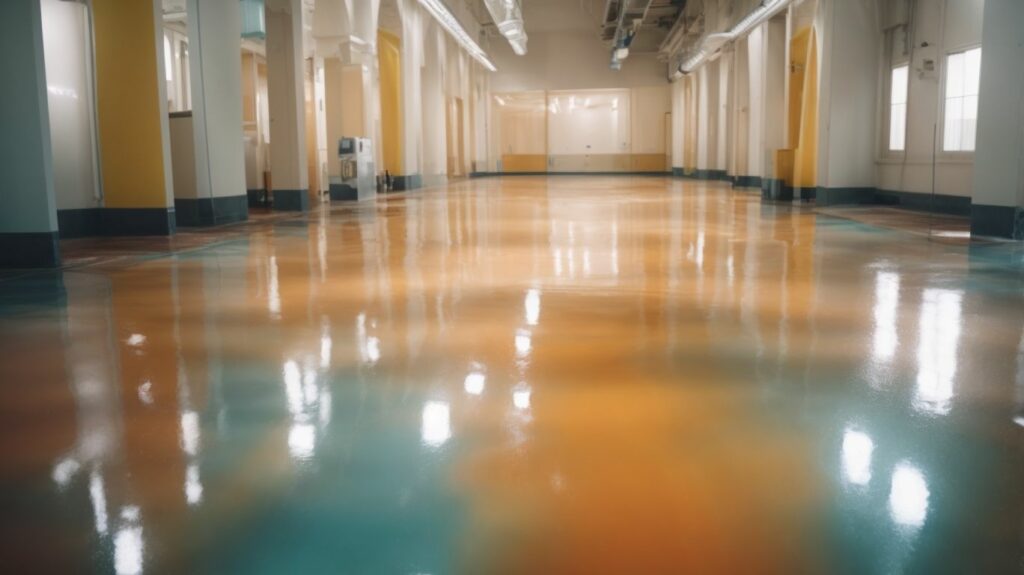


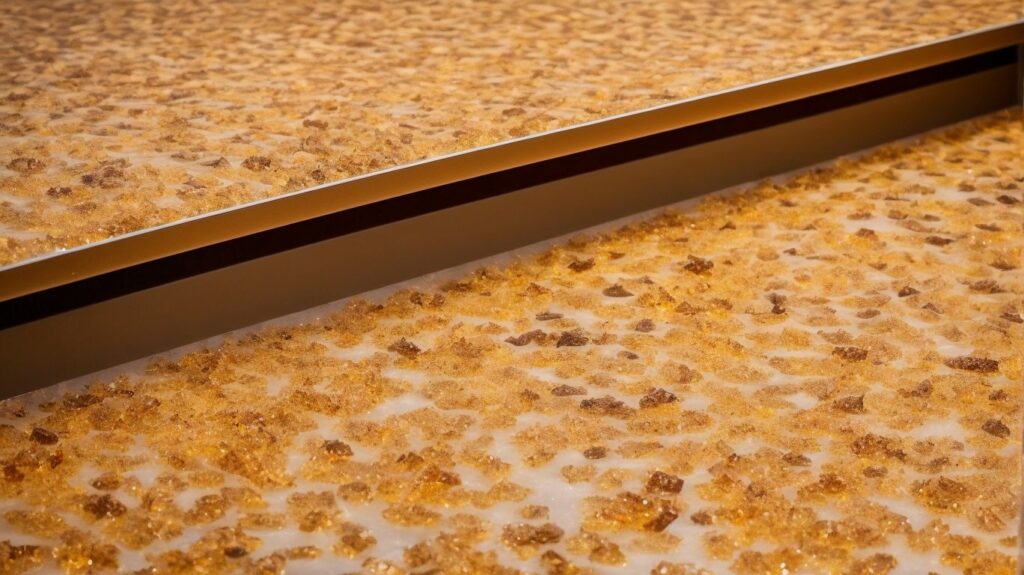

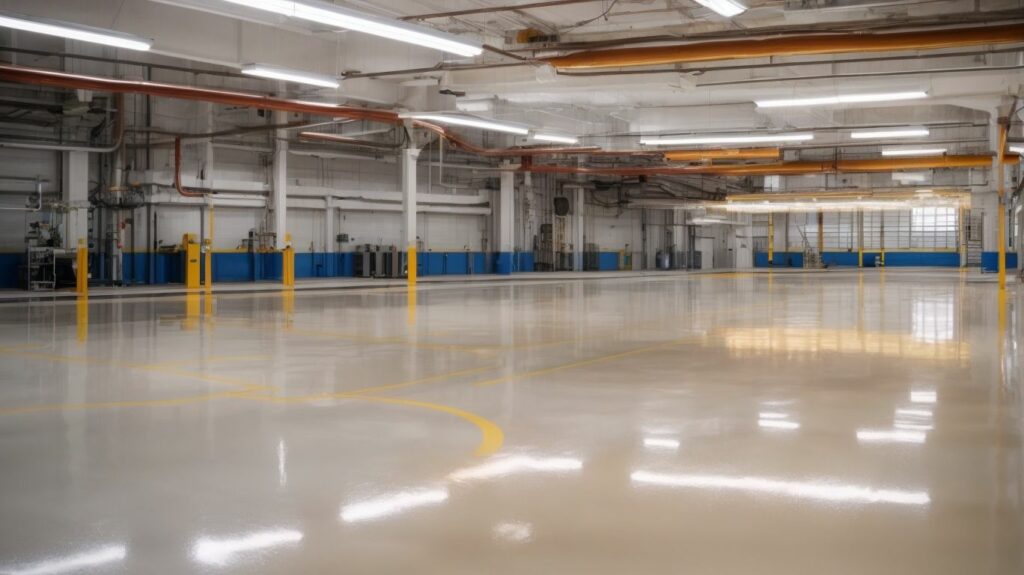
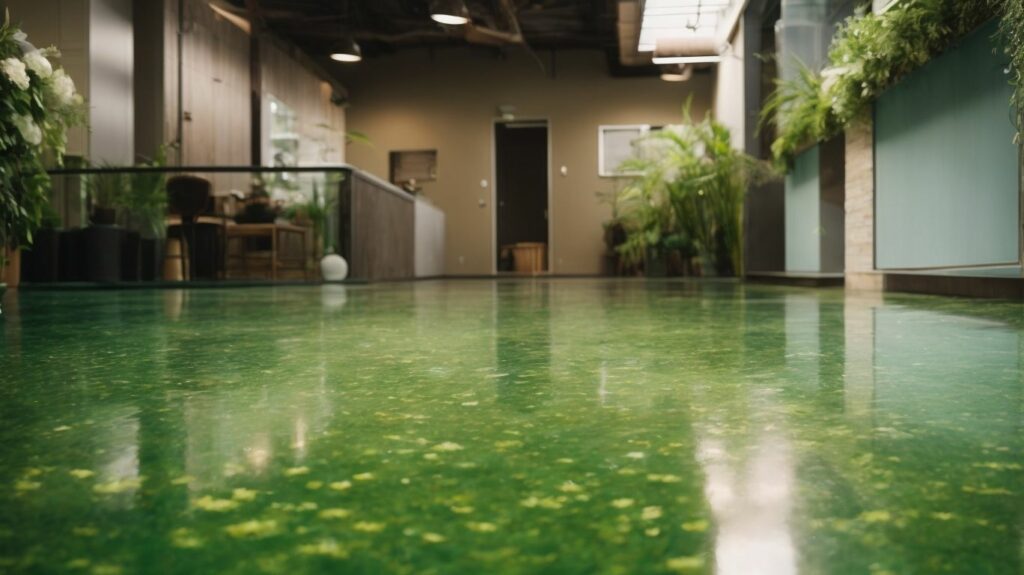

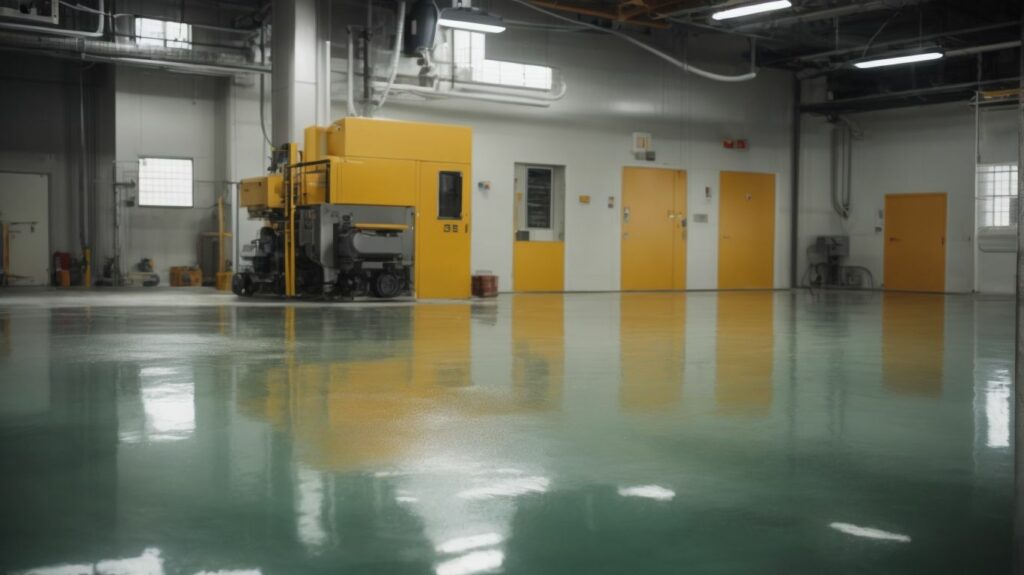
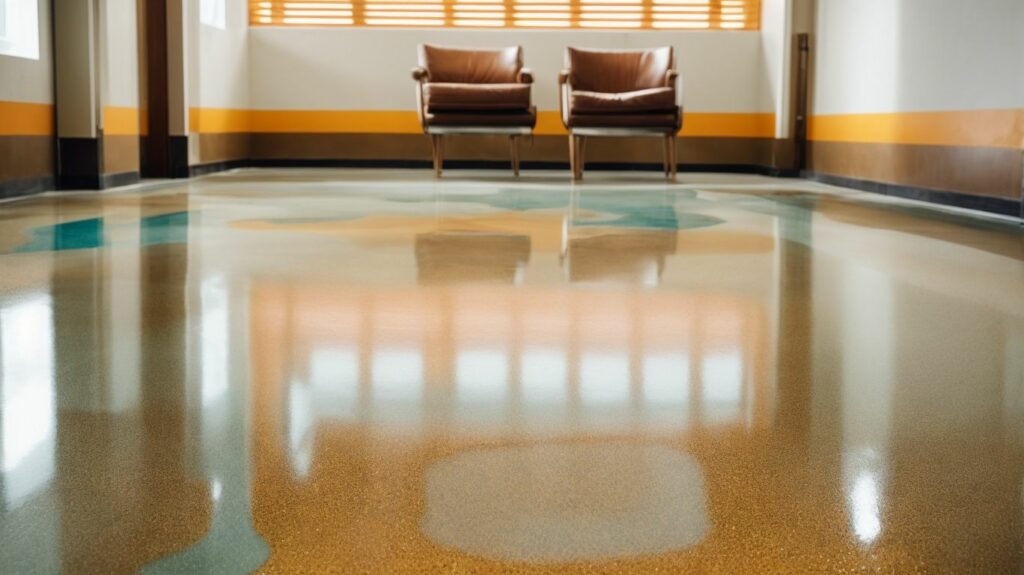
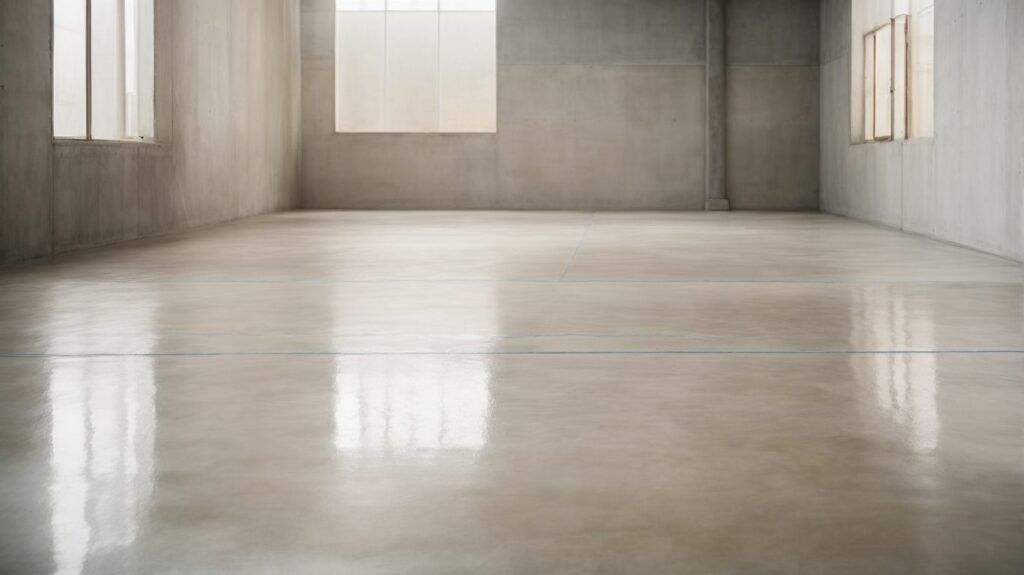




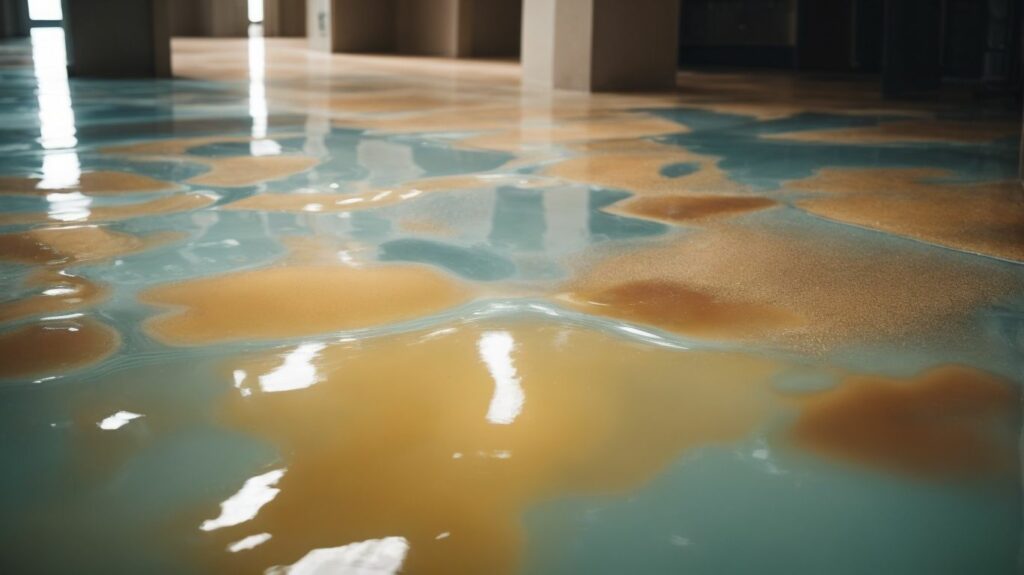
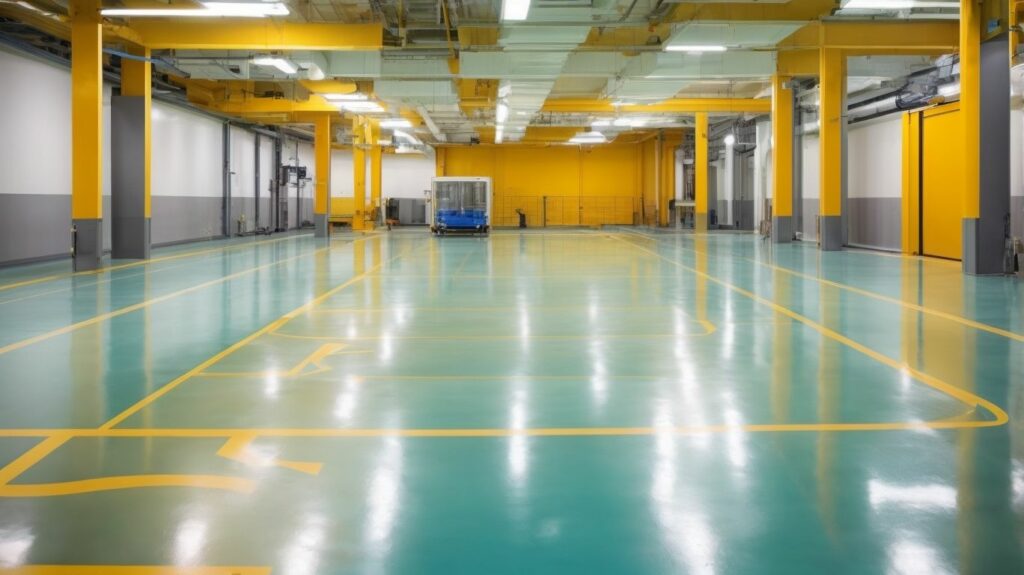
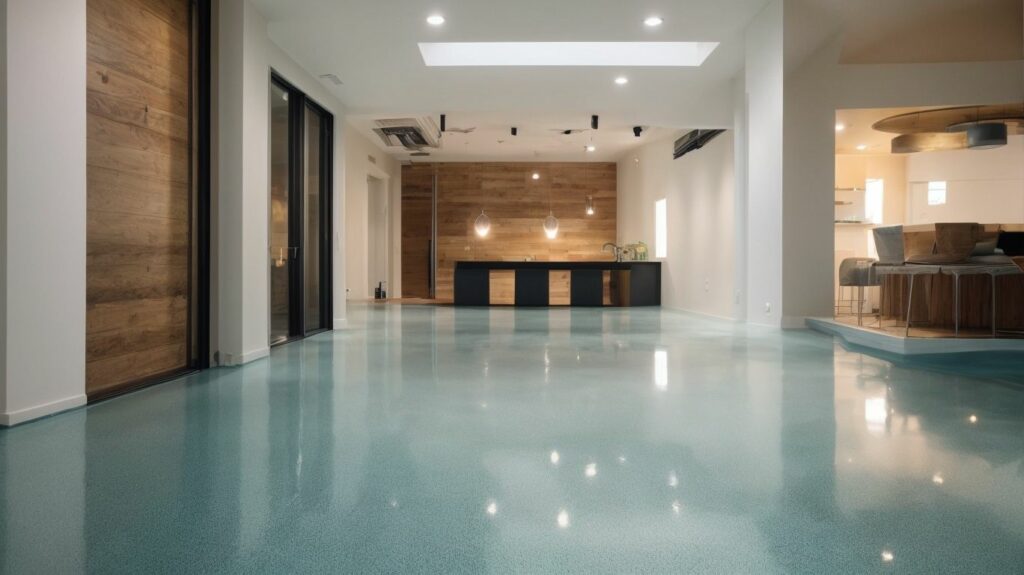

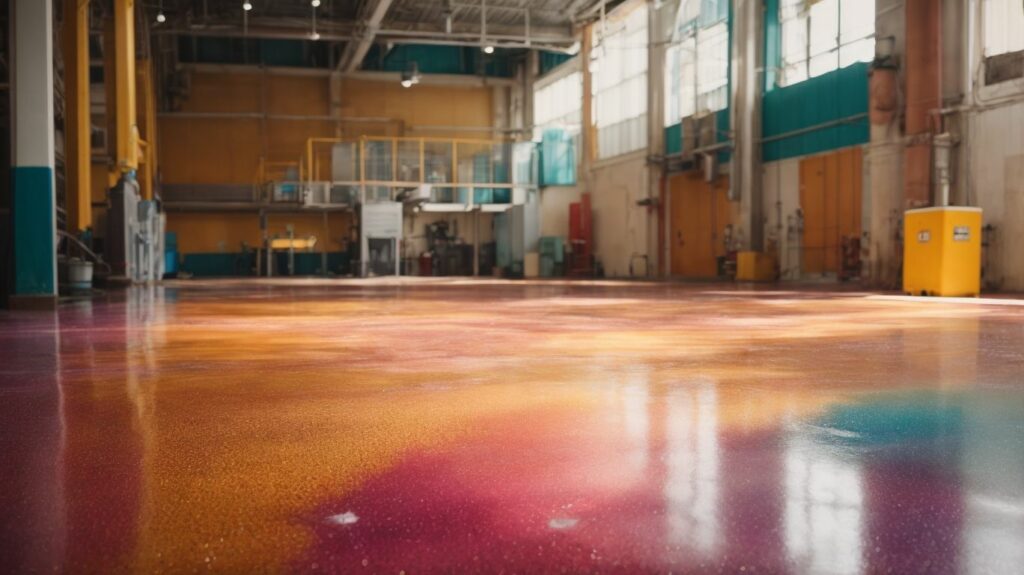
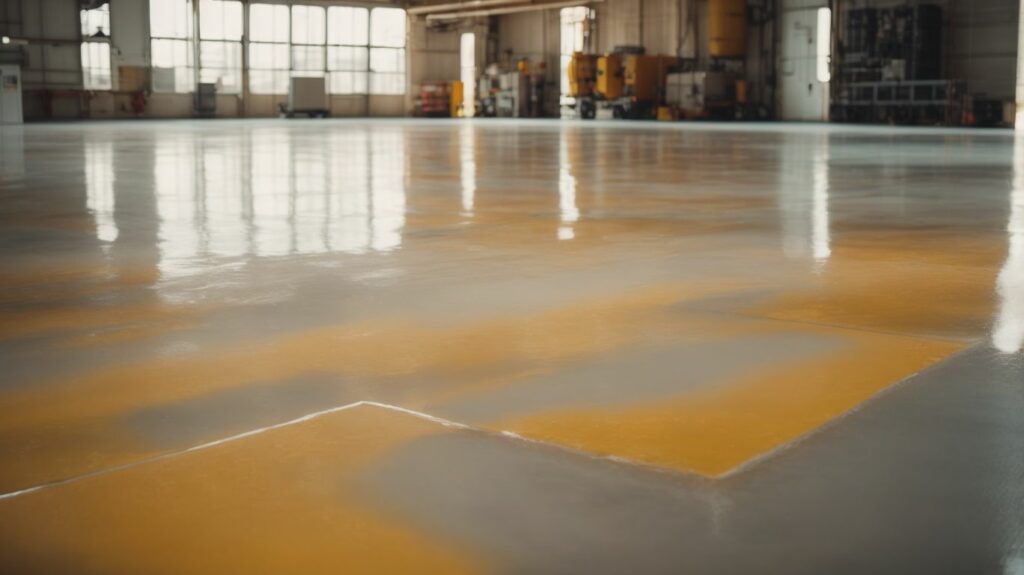
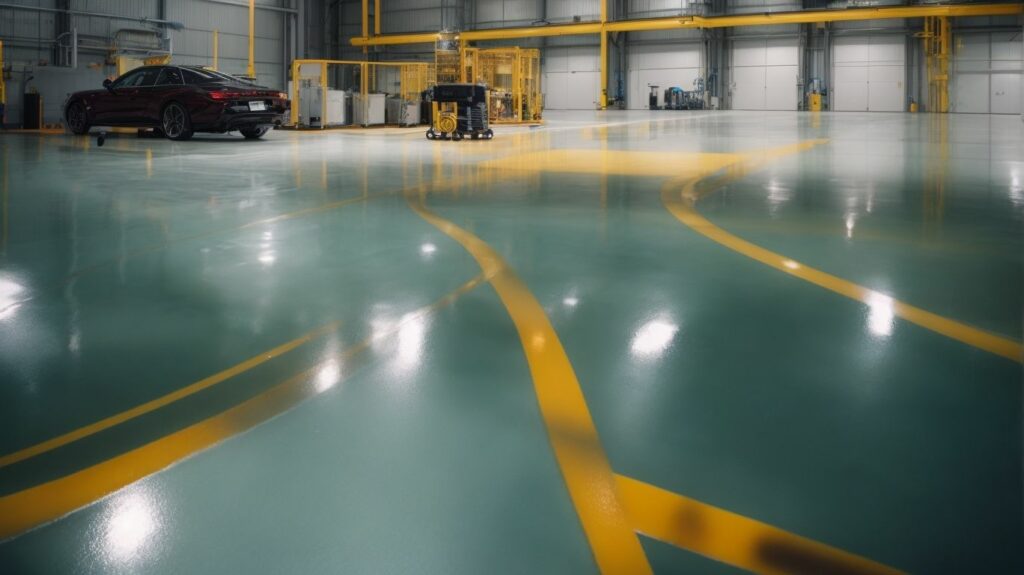

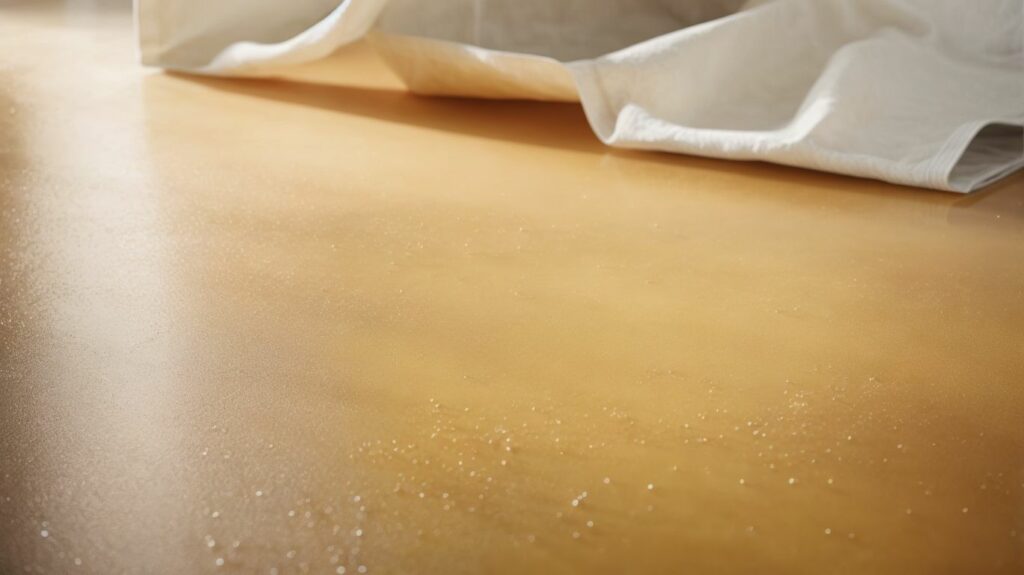

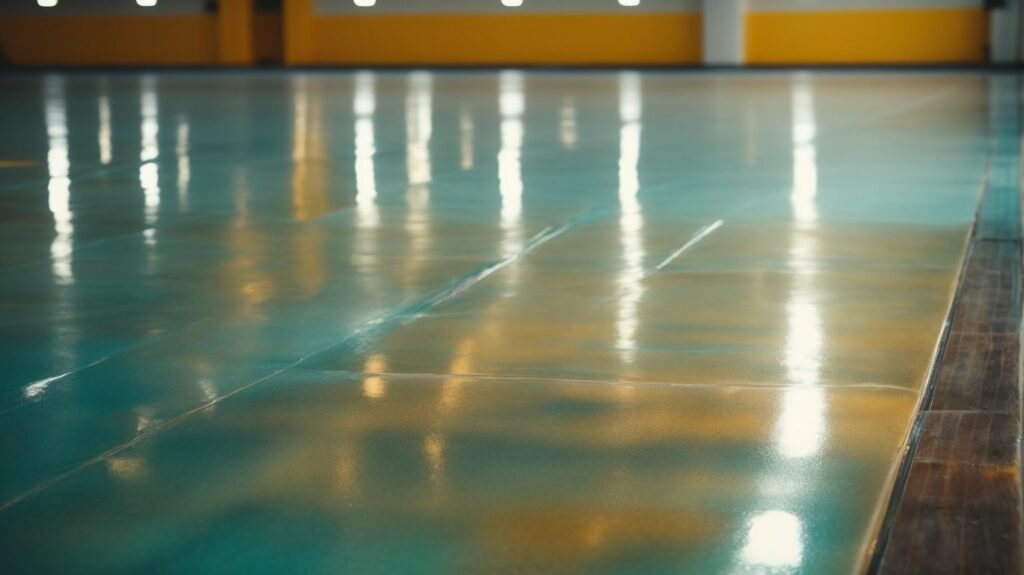


We Aim To Reply To All Enquiries With-in 24-Hours